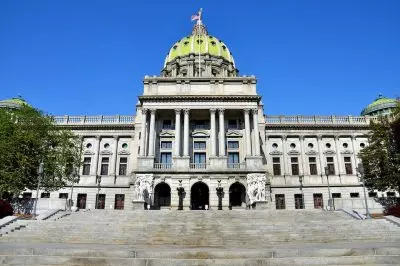 Not all towns in Pennsylvania support the state’s gambling expansion, which was passed less than a month ago. At the mid November, the Pennsylvania Gaming Control Board (PGCB) released a web page listing state municipalities that have already expressed their unwillingness to host satellite casinos.
Not all towns in Pennsylvania support the state’s gambling expansion, which was passed less than a month ago. At the mid November, the Pennsylvania Gaming Control Board (PGCB) released a web page listing state municipalities that have already expressed their unwillingness to host satellite casinos.
Earlier in November, a number of towns and municipalities in Pennsylvania revealed that they had decided not to host mini-casinos under the provisions of the newly-passed gambling expansion law.
Now, a few more boroughs have revealed that they do not want to become part of the state’s gambling expansion. Towns, boroughs and municipalities across the state have until December 31st to decide whether they would like to consider adding a mini-casino or not. Even if they say no to that at present times, they will be able to reverse their resolution in the future in case they decide to become part of the expansion.
More Pennsylvania Towns Turn Their Backs on Mini-Casinos
 Some of the townships and municipalities that have already said no to satellite casinos were the Chester County-located Kennett Township, West Earl and Strasburg townships in Lancaster County, Bucks County’s Lower Makefield Township, Washington and Limestone Townships in Lycoming County, Heath Township in Jefferson County and Tioga County’s Westfield Township.
Some of the townships and municipalities that have already said no to satellite casinos were the Chester County-located Kennett Township, West Earl and Strasburg townships in Lancaster County, Bucks County’s Lower Makefield Township, Washington and Limestone Townships in Lycoming County, Heath Township in Jefferson County and Tioga County’s Westfield Township.
Last week, a few more municipalities in Pennsylvania, including the Patton Township decided not to become part of the gambling expansion. The Ferguson Township Board of Supervisors also said no to mini-casinos.
On November 20th, the State College Borough Council officially passed a resolution to prevent possible construction of a mini-casino within the borough. The council unanimously voted to say no to adding a satellite casino for now.
The Penn Township supervisors have also unanimously decided to ban gambling expansion by adding mini-casino in the township.
Satellite Casinos as Part of Pennsylvania Gambling Expansion
 Satellite casinos, also known as mini-casinos, are part of the piece of gambling legislation that the Pennsylvania Governor Tom Wolf signed at the end of October. The gambling expansion law came as part of the strategy for reducing the financial deficit by one of the main ways to mend the currently struggling state budget.
Satellite casinos, also known as mini-casinos, are part of the piece of gambling legislation that the Pennsylvania Governor Tom Wolf signed at the end of October. The gambling expansion law came as part of the strategy for reducing the financial deficit by one of the main ways to mend the currently struggling state budget.
The long-awaited gambling expansion officially legalized online gambling across the state, making Pennsylvania the fourth state in the US to offer Internet gambling services along with New Jersey, Nevada and Delaware. Also, by giving the nod to the new piece of gambling legislation, state authorities agreed to permit gambling at truck stops and airports, which were given the right to feature video gaming terminals and interactive gambling parlors, respectively.
Under the gambling expansion which was recently signed by State Governor Tom Wolf, a total of 10 Category 4 satellite casinos were allowed to be built. So-called mini casinos could offer up to 750 slot machines, as well as up to 40 table games. The new gambling law also includes some provisions aimed at protecting the already existing casinos in the state from facing performance difficulties.
The new gambling law, which Governor Wolf signed at the end of October, requires from satellite casinos to be situated at least 25 miles away from already existing larger casinos in Pennsylvania. This way, the performance of the land-base casino which already operate across the state, would not be hurt.
On the other hand, struggling casinos in Pennsylvania are planned to be helped by part of the revenue generated by new mini-casinos.
Despite the unwillingness of some Pennsylvania towns to host satellite casinos, there were some municipalities that have already given the nod to the long-awaited gambling expansion. Curwensville Borough Council has shared that the municipality is to be taken into consideration at the time when satellite casinos are sited in the state of Pennsylvania. Reading officials are also keen into bringing a mini-casino to the city, as they think it would be great for both revenue and jobs.